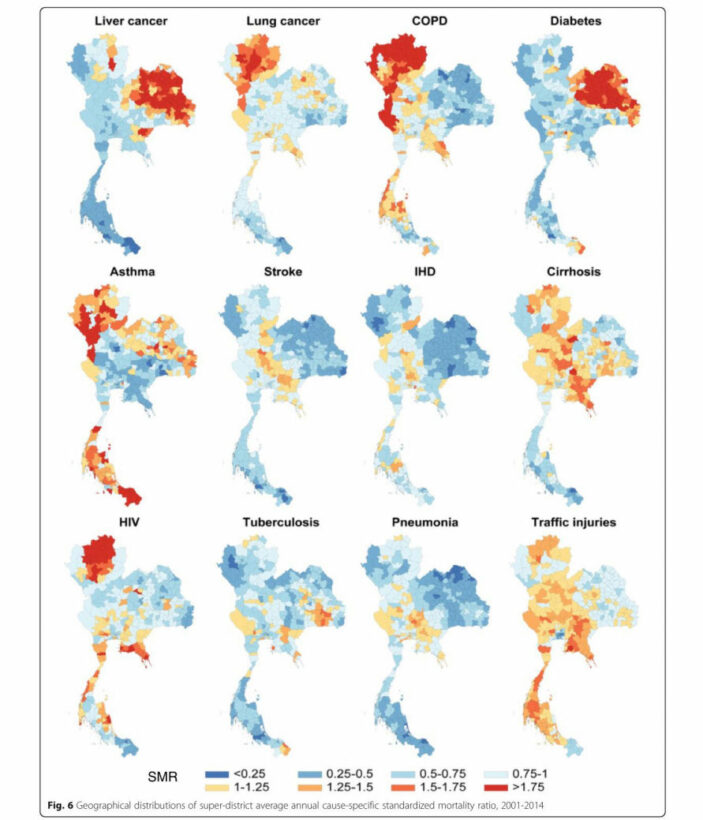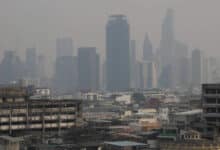Study links Northern and Southern smog with rising cases of respiratory disease

A medical report has pointed to serious health threats from air pollution in Thailand’s smog-prone areas, and the country’s far north north and deep south have been found to be hotspots for asthma and other major respiratory diseases.
Higher death rates from three main respiratory diseases – asthma, lung cancer and chronic obstructive pulmonary disease – in the northern region highlighted that health threats from air pollution are real.
The result of the study relates to reports about air pollution and asthma by the World Health Organisation and UN Environment on the occasion of World Asthma Day yesterday, which emphasised that air pollution was the major factor behind the severe asthma situation around the world.
The report, first published in the International Journal for Equity in Health in December 2016, reveals that there was a noticeable clustering of high mortality from respiratory disease in almost every province in the northern region.

The chart also puts focus on the diet of people living in the north-east of Thailand
Even though the report did not confirm a clear connection between the high mortality rate from respiratory diseases in this part of Thailand and the northern seasonal smog, it hinted that the cluster of respiratory diseases in the North may be a reflection of the severity of the air pollution crisis in the area.
The report also found a considerably high death rate from asthma in the southern region, as five provinces in the deep South – Satun, Songkhla, Pattani, Yala and Narathiwat – were depicted in red on the geographical annual cause-specific standardised mortality ratio map.
The northern region and the deep South were two prominent regions affected the most by seasonal smog. The smog in the South, primarily caused by wildfires and deforestation in Indonesia, has largely been resolved in recent years. The North, however, was still continuously suffering from dense smog of very fine PM2.5 particulate matter every dry season.
SOURCE: The Nation
Latest Thailand News
Follow The Thaiger on Google News:


























